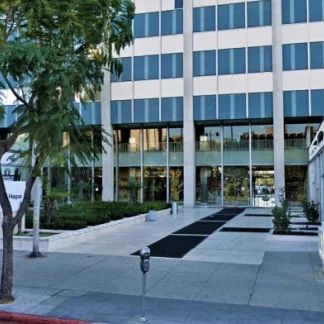Breathe Life Healing Centers
Breathe is dedicated to outstanding trauma-informed clinical care to each client...
Volunteers of America of Los Angeles Outpatient Treatment, located in Los Angeles, California, is an alcohol and drug rehab center that provides addiction treatment to individuals seeking recovery. They also provide linkages to community-based resources for individuals who have unmet needs in addition to their addiction.
Volunteers of America of Los Angeles Outpatient Treatment Begins all treatments with an assessment. Their services include:
The outpatient program provides individual counseling, group counseling, recovery treatment planning, case management services, referral services, random drug screenings, and specialty support services for women, veterans, families, and youth. If a person needs a higher level of care, individuals may be referred to an alcohol or drug rehab center that can provide partial hospitalization treatment or inpatient treatment levels of care. Self-help groups are also encouraged, including but not limited to SMART and the 12 Steps of Alcoholics Anonymous.
Volunteers of America of Los Angeles Outpatient Treatment accepts most insurance plans, including Magellan, Cigna, ComPsych, Amerigroup, Anthem, Blue Cross Blue Shield, Aetna, and more. Out-of-network benefits may vary.
Contact us for more information: (213) 389-1500

Connect with Volunteers of America of Los Angeles - Outpatient Treatment by calling their admissions team directly.
(213) 389-1500 Website Get DirectionsResearch clearly demonstrates that recovery is far more successful and sustainable when loved ones like family members participate in rehab and substance abuse treatment. Genetic factors may be at play when it comes to drug and alcohol addiction, as well as mental health issues. Family dynamics often play a critical role in addiction triggers, and if properly educated, family members can be a strong source of support when it comes to rehabilitation.
Group therapy is any therapeutic work that happens in a group (not one-on-one). There are a number of different group therapy modalities, including support groups, experiential therapy, psycho-education, and more. Group therapy involves treatment as well as processing interaction between group members.
In individual therapy, a patient meets one-on-one with a trained psychologist or counselor. Therapy is a pivotal part of effective substance abuse treatment, as it often covers root causes of addiction, including challenges faced by the patient in their social, family, and work/school life.
Trauma therapy addresses traumatic incidents from a client's past that are likely affecting their present-day experience. Trauma is often one of the primary triggers and potential causes of addiction, and can stem from child sexual abuse, domestic violence, having a parent with a mental illness, losing one or both parents at a young age, teenage or adult sexual assault, or any number of other factors. The purpose of trauma therapy is to allow a patient to process trauma and move through and past it, with the help of trained and compassionate mental health professionals.
Group therapy is any therapeutic work that happens in a group (not one-on-one). There are a number of different group therapy modalities, including support groups, experiential therapy, psycho-education, and more. Group therapy involves treatment as well as processing interaction between group members.
In individual therapy, a patient meets one-on-one with a trained psychologist or counselor. Therapy is a pivotal part of effective substance abuse treatment, as it often covers root causes of addiction, including challenges faced by the patient in their social, family, and work/school life.
Trauma therapy addresses traumatic incidents from a client's past that are likely affecting their present-day experience. Trauma is often one of the primary triggers and potential causes of addiction, and can stem from child sexual abuse, domestic violence, having a parent with a mental illness, losing one or both parents at a young age, teenage or adult sexual assault, or any number of other factors. The purpose of trauma therapy is to allow a patient to process trauma and move through and past it, with the help of trained and compassionate mental health professionals.
In individual therapy, a patient meets one-on-one with a trained psychologist or counselor. Therapy is a pivotal part of effective substance abuse treatment, as it often covers root causes of addiction, including challenges faced by the patient in their social, family, and work/school life.
Trauma therapy addresses traumatic incidents from a client's past that are likely affecting their present-day experience. Trauma is often one of the primary triggers and potential causes of addiction, and can stem from child sexual abuse, domestic violence, having a parent with a mental illness, losing one or both parents at a young age, teenage or adult sexual assault, or any number of other factors. The purpose of trauma therapy is to allow a patient to process trauma and move through and past it, with the help of trained and compassionate mental health professionals.
Trauma therapy addresses traumatic incidents from a client's past that are likely affecting their present-day experience. Trauma is often one of the primary triggers and potential causes of addiction, and can stem from child sexual abuse, domestic violence, having a parent with a mental illness, losing one or both parents at a young age, teenage or adult sexual assault, or any number of other factors. The purpose of trauma therapy is to allow a patient to process trauma and move through and past it, with the help of trained and compassionate mental health professionals.
Breathe is dedicated to outstanding trauma-informed clinical care to each client...
Covenant House California offers housing programs and outpatient medical and men...
Atlantic Recovery Services Charter III is a private rehab located in Los Angeles...
Children’s Bureau - Magnolia Place Family Center, in Los Angeles, California, of...